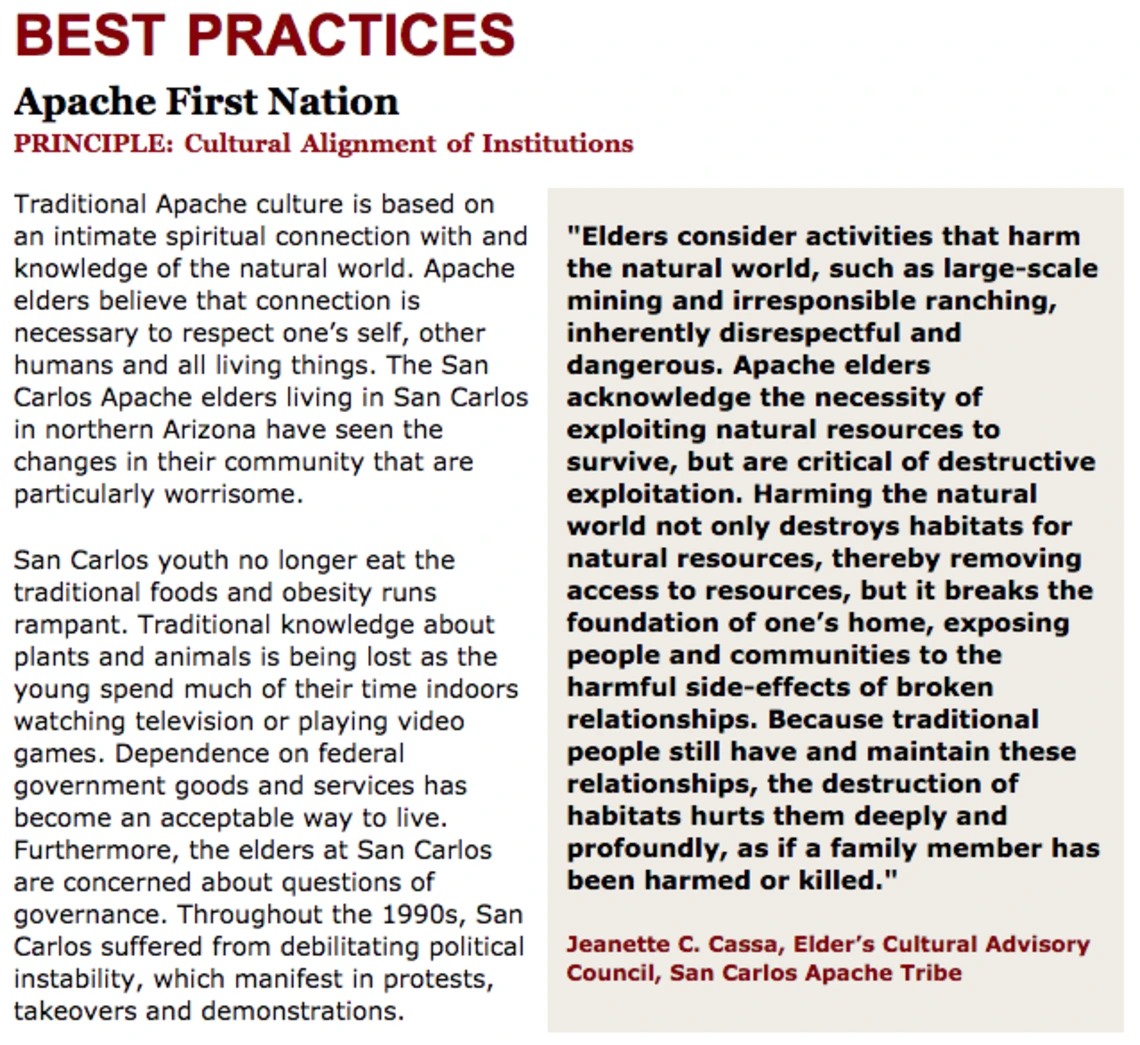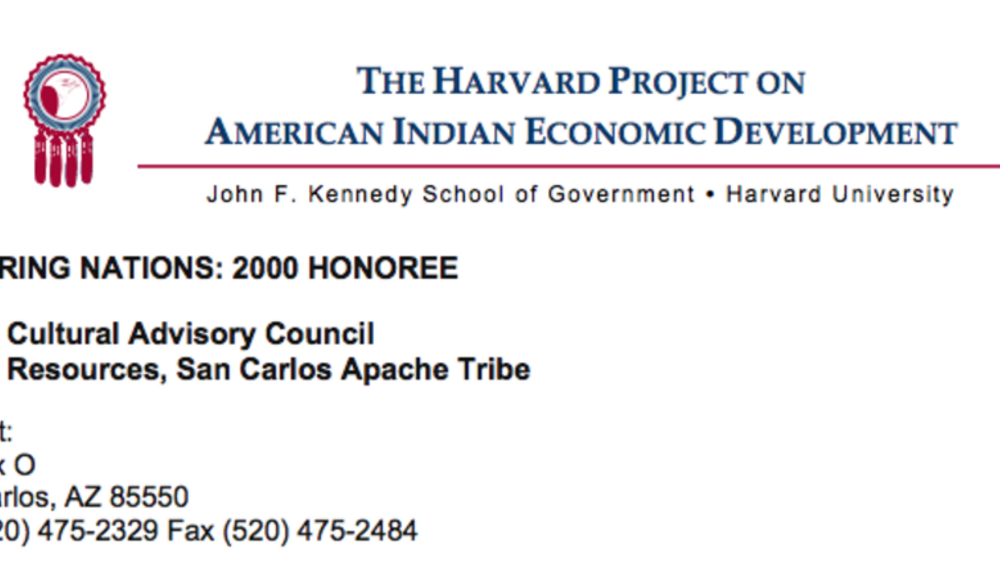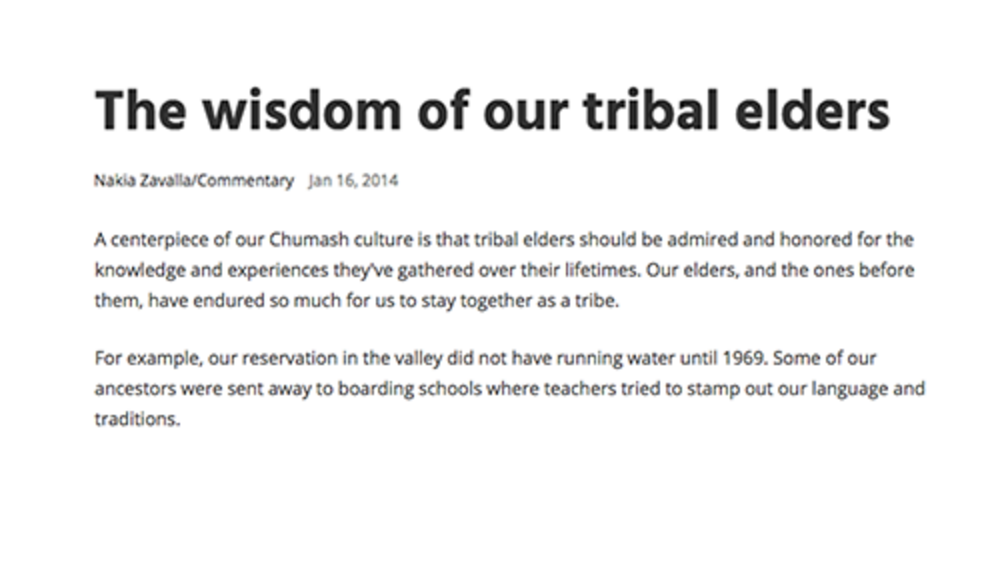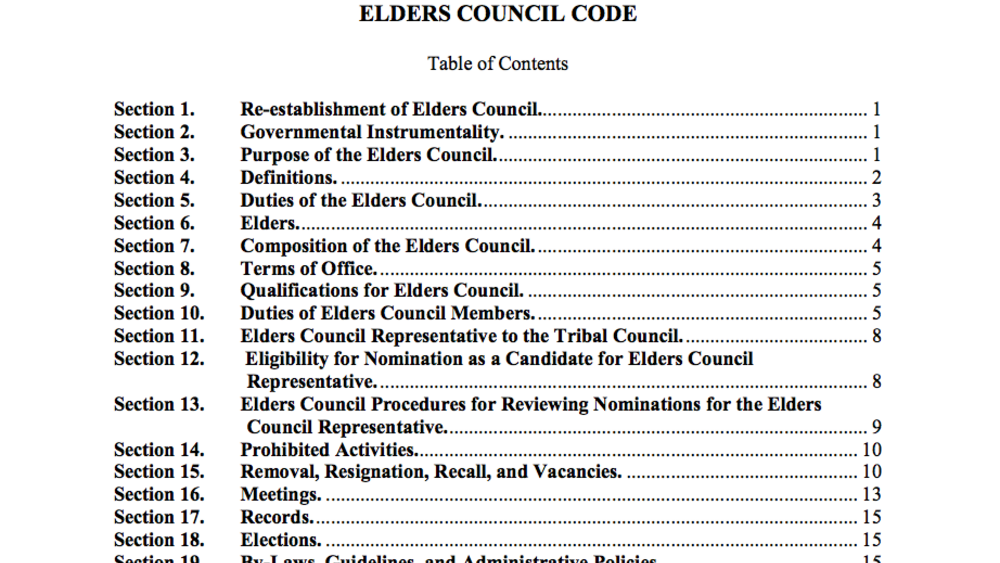Traditional Apache culture is based on an intimate spiritual connection with and knowledge of the natural world. Apache elders believe that connection is necessary to respect one’s self, other humans and all living things. The San Carlos Apache elders living in San Carlos in northern Arizona have seen the changes in their community that are particularly worrisome...In the midst of such cultural, political and economic difficulties lies a kernel of hope and inspiration — the San Carlos Elders Cultural Advisory Council (ECAC). Formed in November 1993 by Tribal Council resolution, the all-volunteer ECAC was established to advise the Tribal Council on cultural matters, to carry out consultations with off-reservation entities on culturally related matters, and to execute various projects related to cultural preservation...
Additional Information
National Centre for First Nations Governance. "Best Practices Case Study (Cultural Alignment of Institutions): San Carlos Apache." A Report for the National Centre for First Nations Governance. The National Centre for First Nations Governance. Canada. June 2009. Case Study. (https://fngovernance.org/wp-content/uploads/2020/07/CAI_Apache.pdf, accessed March 23, 2023)




